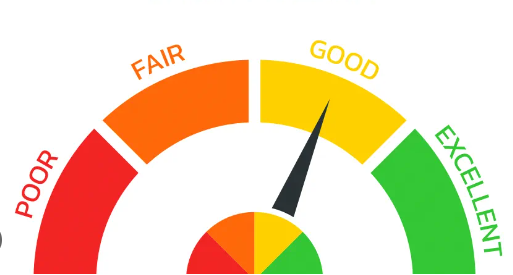A credit score is a number that reflects a person’s creditworthiness and is based on their credit history. Lenders, banks, and other financial institutions typically use it to assess loan or credit applications. Higher credit scores increase the likelihood of approval and result in better terms and interest rates. The calculation of credit scores is based on data extracted from credit reports, which provide information on an individual’s credit history, including their payment history, existing debts, length of credit history, and credit types. FICO and Vantage Score are the most frequently used models for credit scoring.
Understanding Credit Score
A credit score is a numerical evaluation of a person’s creditworthiness and their capacity to repay loans and credit. Financial institutions, including lenders and banks, utilize credit scores to determine the level of risk linked with lending money to an individual. Credit scores are computed by examining data extracted from credit reports, which provide a detailed account of an individual’s credit history, payment history, outstanding debts, credit duration, and credit types used.
Factors that Affect Credit Score
In calculating credit scores, various factors are taken into account, which include payment history, credit utilization, length of credit history, types of credit used, and new credit inquiries. Payment history, specifically the record of timely and delayed payments, carries the most weight in determining the credit score. Late payments can substantially reduce the score and have a long-term impact. Another significant factor is credit utilization, which measures the amount of credit used compared to the credit limit. Maintaining low credit utilization is crucial for maintaining a favorable credit score. Length of credit history is also an important consideration, as a longer credit history demonstrates responsible credit behavior over time. The credit score is also influenced by the types of credit used, such as credit cards, instalment loans, and mortgages. Lastly, new credit inquiries, which are applications for new credit, can temporarily lower the score. By comprehending these factors and implementing measures to manage them, individuals can maintain or improve their credit score.
Tips to Improve Credit Score
To improve their credit score, individuals can follow several steps. The following tips can help:
Ensure timely bill payments: Late payments can significantly reduce a credit score. Thus, it is essential to make timely payments to maintain a good score.
Maintain low credit utilization: Maintaining low credit utilization is crucial for a favorable credit score. Ideally, credit utilization should be kept below 30% of the credit limit.
Verify credit reports for errors: Reviewing credit reports for errors is crucial as incorrect information can adversely impact a credit score. Addressing and resolving errors can help improve the score.
Avoid closing old credit accounts: Shutting down old credit accounts can decrease the length of credit history, which can negatively impact the credit score. It is advisable to keep old accounts open, even if they are not being used.
Limit new credit inquiries: Applying for new credit can temporarily reduce a credit score. Limiting new credit inquiries can help maintain a good score.
By adopting these strategies and following responsible credit behaviour consistently, individuals can enhance their credit score over time.
Credit Score Monitoring and Management
To maintain or improve their credit score, individuals must monitor and manage it regularly. Credit score monitoring involves checking credit reports for errors, inaccuracies, or fraudulent activities that can negatively affect the credit score. By monitoring their credit score, individuals can identify potential issues and address them promptly. Various online tools and services allow individuals to monitor their credit score for free or for a minimal fee.
Credit score management entails taking specific steps to maintain or improve a credit score, such as paying bills on time, keeping credit utilisation low, and avoiding new credit inquiries. Several credit card companies and financial institutions offer resources and tools to help individuals manage their credit score effectively.
By monitoring and managing their credit score, individuals can take charge of their creditworthiness and enhance their chances of being approved for credit and obtaining favourable terms and interest rates.
Conclusion
To summarise, credit score plays a crucial role in an individual’s financial life, as it determines their creditworthiness and ability to obtain credit and favourable terms. Lenders, banks, and other financial institutions use credit scores to assess the risk of lending money to an individual. Factors such as payment history, credit utilisation, length of credit history, types of credit used, and new credit inquiries are used to calculate credit scores.
To maintain or improve their credit score, individuals can take steps such as paying bills on time, keeping credit utilisation low, checking credit reports for errors, and limiting new credit inquiries. Credit score monitoring and management are also crucial for detecting and addressing potential issues that could negatively impact credit scores. Many online tools and services are available to help individuals monitor and manage their credit scores effectively.
By implementing these tips and consistently practising responsible credit behaviour, individuals can take control of their creditworthiness and increase their chances of achieving their financial goals. Whether it’s obtaining a mortgage, a car loan, or a credit card, a good credit score is essential for financial success. Therefore, it’s essential to understand credit scores, how they are calculated, and how to maintain or improve them over time.







